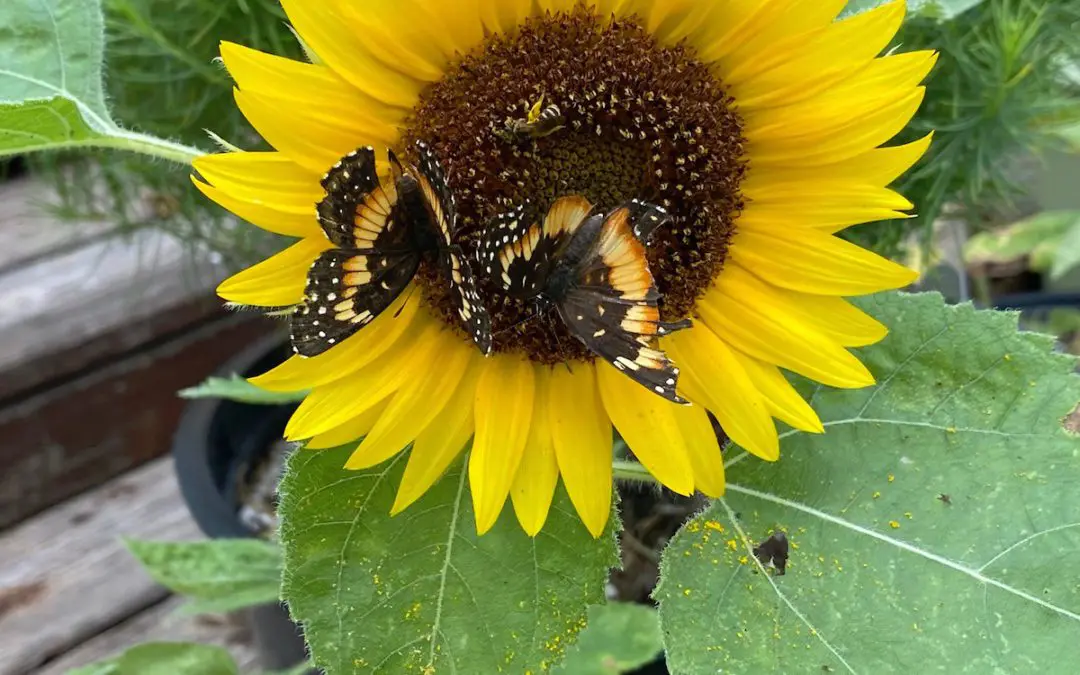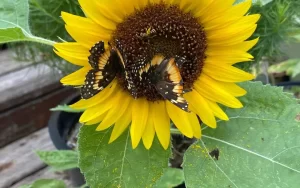Click to call us: 857-504-5117
contact@greenpulselandscaping.com
Click to call us: 857-504-5117
contact@greenpulselandscaping.com


Creating a Sunny Haven: Native Sunflowers in Massachusetts Gardens
Sunflowers, with their vibrant hues and cheerful demeanor, have long been symbols of summer. In Massachusetts, native sunflower varieties not only capture the essence of the season but also thrive in the local climate, making them an ideal choice for gardens across the state.
Why Native Sunflowers?
Native sunflowers, such as the Helianthus annuus, offer several advantages for Massachusetts gardens. These varieties are adapted to the region’s specific environmental conditions, including soil types and climate fluctuations. By choosing native species, gardeners can cultivate plants that are more resilient to local pests, diseases, and weather patterns, ultimately leading to greater success in their gardens.

Adaptable and Versatile
One of the key benefits of native sunflowers is their adaptability to various growing conditions. While they prefer full sun, they can tolerate a range of soil types, including sandy, loamy, or clay soils. This versatility makes them suitable for a wide range of garden settings, from backyard flower beds to urban landscapes and even roadside plantings.
Bringing Joy to Gardens
The sight of native sunflowers swaying in the breeze brings joy to any garden. Their bright yellow petals and dark centers create a striking contrast against the backdrop of green foliage, adding visual interest and vibrancy to outdoor spaces. Whether planted en masse or interspersed with other native flowers, sunflowers can transform an ordinary garden into a spectacular display of color and life.
Attracting Pollinators
Beyond their aesthetic appeal, native sunflowers play a crucial role in supporting local pollinators. Bees, butterflies, and other beneficial insects are drawn to the abundant nectar and pollen provided by sunflower blooms. By incorporating these plants into garden designs, homeowners can create pollinator-friendly habitats that contribute to the health and diversity of local ecosystems.

Environmental Benefits
In addition to their ornamental value and ecological importance, native sunflowers offer several environmental benefits. Their deep root systems help improve soil structure and prevent erosion, making them valuable allies in soil conservation efforts. Furthermore, sunflowers are known for their phytoremediation abilities, meaning they can absorb and detoxify pollutants from the soil, making them ideal candidates for urban greening initiatives and brownfield remediation projects.
Tips for Growing Native Sunflowers
For those interested in cultivating native sunflowers in their Massachusetts gardens, here are some helpful tips:
By following these guidelines, gardeners can enjoy the beauty and benefits of native sunflowers while creating thriving, sustainable landscapes in Massachusetts.
Conclusion
Native sunflowers are not just garden adornments; they are essential contributors to local ecosystems and symbols of summer’s splendor in Massachusetts. By incorporating these resilient and versatile plants into garden designs, homeowners can enhance the beauty of their outdoor spaces while supporting biodiversity and environmental conservation efforts. So, whether you’re a seasoned gardener or a novice enthusiast, consider adding native sunflowers to your Massachusetts garden and watch as they brighten your landscape and bring joy to all who behold them.